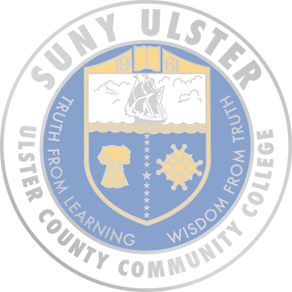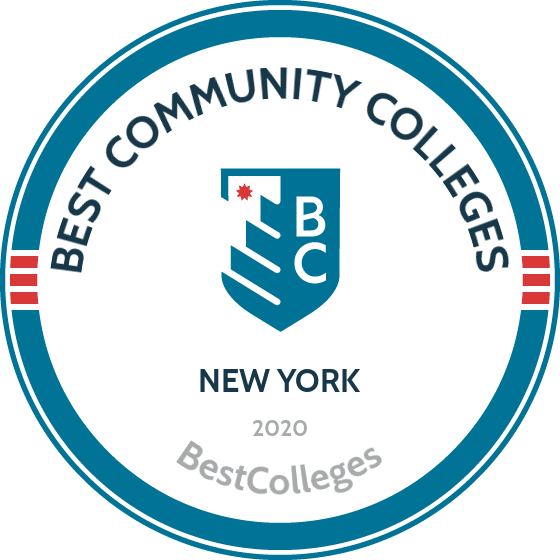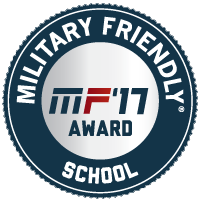Courses
215 courses found when searching within the Fall 2024 semester.
page = 6Building Automation & Controls
GRB 210
In this course, students learn the basic principles of building automation and controls for energy management. Topics include control devices, signals, logic, and applications for various systems, such as electrical, lighting, HVAC, plumbing, fire protection, security, access control, voice-data-video, and elevator systems.
Solar & Wind Systems
GRB 220
In this course, students learn the basic principles of photovoltaic and wind generated power, with an emphasis on how to maintain and manage these technologies, as well as the buildings with which they are associated. The key components and principles, site issues, and economic considerations of solar and wind systems are covered.
Personal and Community Health
HEA 113
This survey course focuses on the personal aspects of health and their relationship to health in the community. Topics include emotional health, drug and alcohol use, smoking, nutrition, weight control, physical fitness, communicable disease, consumer health, human sexuality, and human reproduction.
Emergency Care and First Aid
HEA 117
Functional first-aid capabilities required to provide the initial emergency care necessary to sustain life and to maintain temporary life support to victims of accidents or sudden illness are developed in this course. The course deals with hemorrhage control, cardiopulmonary resuscitation, fractures, burns, poisoning, and sudden illness. Those who qualify receive an American Red Cross Responding to Emergencies Certificate and a Community CPR Certificate. Certificate fee.
Western Civilization I
HIS 101
This survey course traces the history of Western Civilization from the ancient world through the end of the 16th century. This course meets the SUNY General Education requirement for World History and Global Awareness. Pre and/or Corequisite: ENG 101.
Western Civilization II
HIS 102
This survey course traces the history of Western Civilization from the 17th century to the present. This course meets the SUNY General Education requirement for World History and Global Awareness. Pre and/or Corequisite: ENG 101.
American History I
HIS 103
This survey course traces the development of American civilization from the colonial era through Reconstruction. This course meets the SUNY General Education requirement for U.S. History and Civic Engagement. Prerequisite or corequisite: ENG 101.
American History II
HIS 104
This survey course traces the development of American civilization from the post-Civil War era through the present. This course meets the SUNY General Education requirement for U.S History and Civic Engagement. Prerequisite or corequisite: ENG 101.
Ancient Rome:Republic&Empire
HIS 213
This course is a survey of the history of ancient Rome from the founding of the city in the eighth century B.C. E. to the collapse of the Western Empire in the fifth century C.E. This course meets the SUNY General Education requirement for World History and Global Awareness. Pre and/or Corequisite: ENG 101.
African-American History
HIS 265
This course surveys the development of the African American community in the United States from the Colonial era through the present. This course meets the SUNY General Education requirement for Diversity, Equity, Inclusion and Social Justice, as well as U.S. History and Civic Engagement. Prerequisite or corequisite: ENG 101.
Intro to Human Services
HUS 103
Students are introduced to the purpose, history and scope of the human services field and the major social sciences concepts and theories that guide practice including contemporary societal factors that shape the development of individual and group identity. Critical analysis of social sciences methods of exploration, case studies, and participation in experiential exercises familiarize students with issues confronting professional helpers and strategies of intervention. The development of self-awareness is fostered in students in preparation for human service delivery in a multicultural society where principles of rights, access, equity, and autonomous participation will guide the development of human service professionals. The majority of the texts, case studies, and other course materials support the examination of the multifaceted fields within the social sciences. This course is designed for students interested in counseling psychology, sociology, social work, gerontology, criminal justice, human and health services.
Intellectual&Dev Disabilities
HUS 202
Students survey the sub-field of human services work with people with disabling conditions, intellectual disabilities, learning disorders, social, emotional and behavioral disorders, sensory impairments, and speech and language disorders. Students study perspectives on disability and current diagnostic definitions, critically review the impact of labels on the individual, family and society and discuss and evaluate the way in which social policy affects those with disabling conditions. Classroom sessions are also used to develop and strengthen practice skills for direct support professionals. Pre or co-requisite: HUS 103.
Ethics & Standards for HumSrvs
HUS 209
This course introduces students to the fundamentals of philosophy as a major discipline within the field of humanities and evaluates various conventions and methods of applied ethical theory with an area-specific examination of the ethical concerns common to the field of human services. Students will explore the history of ethics and developing professional codes pertaining to the moral concepts of values, virtue, and justice within the human services professions. There will be an examination of right and wrong as it applies to case studies based on human service and direct support care situations including issues pertaining to boundaries and confidentiality. Students will apply ethical decision-making while engaging and exchanging critical ideas and reflective thinking with others about ethical issues and develop practice skills for human services and direct support professionals including persuasive communication, teamwork, self-management and creative problem-solving. Pre and/or Corequisite: HUS 103
Hum Serv Interview & Counselng
HUS 211
Students are introduced to the basics of interviewing and counseling. Specific topics include working with multicultural populations, counseling theories, assessment methods, effective counseling techniques, and ethical considerations. Classroom practice sessions are utilized to improve interviewing and counseling skills. Prerequisite: HUS 103.
HUS Practicum&Seminar I
HUS 212
This course is the first in a two-course sequence designed for the A.A.S. Human Service degree program In this course, students apply the values, concepts and skills acquired in the classroom to supervised participation in direct service, administrative and/or community-based tasks in a human service setting. Students investigate the structure and function of a human service agency, its role in the community, the inter-agency network and the characteristics and issues of populations served. Students develop increased self-awareness as beginning human service professionals and strengthen generalist practice skills as they observe and assist experienced staff and interact with individuals, families and/or groups at a level appropriate to the placement and the setting. Students are required to complete 125 hours in the field placement agency and participate 15 hours of campus-based seminars held on alternate weeks throughout the semester. This course is a requirement for students seeking the Certificate in Direct Care. Prerequisite: 30 hours of Major Core Courses, HUS 103; ENG 101.
Freshman Seminar
KEY 103
An orientation seminar geared toward individual educational goals, this course emphasizes the College's resources, support systems and development of student educational plans. Topics include the College's policies and procedures, motivation and goal setting, utilizing the Portal and Blackboard, financial literacy, and career and transfer planning. This course is designed specifically for first time, full-time students.
Information Literacy
LIB 111
Students will learn the concepts and skills required to locate and manage accurate and authoritative information, fulfilling academic, professional, and personal demands. Critical thinking is reinforced through hands-on applications to develop competency and to build an awareness of the broader issues emerging in the digital landscape. Students will practice techniques to adapt to rapidly changing technology, and to become discriminating users of information in multiple formats and subject areas.
Honors Information Literacy
LIB 171
Students will learn the concepts and skills required to locate and manage accurate and authoritative information, fulfilling academic, professional, and personal demands. Critical thinking is reinforced through hands-on applications to develop competency and to build an awareness of the broader issues emerging in the digital landscape. Students will practice techniques to adapt to rapidly changing technology, and to become discriminating users of information in multiple formats and subject areas. While achieving the same Student Learning Outcomes as LIB111, this honors course differs in the delivery of material with a focus on depth, critical thinking, and discussion. The course fulfills the LIB111, Information Literacy, 1 cr. Requirement. Prerequisite: Permission of the Honors Program Director.
Intro: Quantitative Reasoning
MAT 095
This course focuses on basic mathematical skills for everyday life. Students will utilize percentages, probability, mathematical modeling, and statistical thinking to solve real life problems. Concepts are investigated through group work and class discussion in the context of medical, environmental, civic and financial scenarios. Prerequisite: MAT 091 with a grade of C or better or by placement assessment. Pre and/or Corequisite: Placement into CRT 101 or higher.
Introduction to Algebra
MAT 097
This course will introduce algebra and related topics and will cover factoring, algebraic fractions, exponents, roots, radicals, and quadratic functions. Upon completion of this course students will be prepared to take MAT115 College Algebra and Trigonometry.
page = 6




